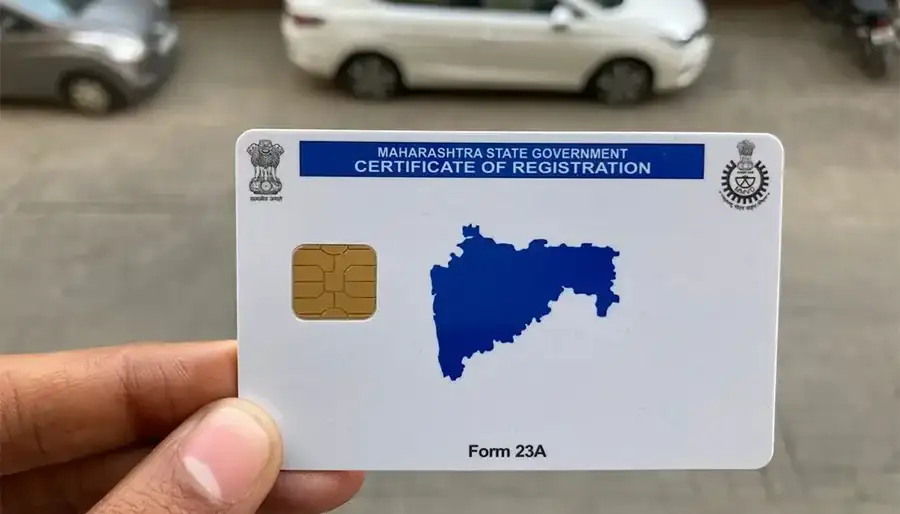
Have you ever wondered what that important-looking document is that you receive when you buy a new vehicle in India? It's called a vehicle Registration Certificate, and it's an essential piece of paper that every vehicle owner must possess. Whether you're a first-time vehicle buyer or a seasoned owner, understanding what is a vehicle registration certificate (RC), why it's crucial, and how to obtain or transfer one is vital. In this article, we'll dive deep into the world of vehicle RCs, covering everything from their meaning and importance to the forms and procedures involved in getting one. Let's begin!
Key Highlights
- A vehicle registration certificate is an official document issued by the Regional Transport Office (RTO) that certifies a vehicle's registration with the Indian government.
- The RC contains vital details about the vehicle and its owner, such as the registration number, chassis number, engine number, owner's name and address, and more.
- You need to apply for an RC when purchasing a new vehicle or transferring ownership of a pre-owned one. The process involves submitting specific forms and documents to the RTO.
- Transferring an RC is necessary when selling a vehicle, moving to another state, or in the event of the owner's death. The procedure varies slightly in each case.
What Is the Vehicle Registration Certificate?
A vehicle registration certificate, also known as an RC, is an official document issued by the Regional Transport Office (RTO) that serves as proof of your vehicle's registration with the Indian government. It certifies that your vehicle is legally allowed to ply on Indian roads and that you are its rightful owner.
The RC is a critical document that every vehicle owner must possess, whether you own a car, motorcycle, scooter, or commercial vehicle. It contains essential information about your vehicle and is required for various purposes, such as:
- Buying or selling a vehicle
- Applying for vehicle insurance
- Paying road tax
- Obtaining a pollution under control (PUC) certificate
- Transferring vehicle ownership
Also Read -
Know the differences between petrol and diesel cars in India
What Details Does a Vehicle Registration Certificate Contain?
The RC is a treasure trove of information about your vehicle. Here are the key details you'll find:
- Registration number: The unique alphanumeric code assigned to your vehicle by the RTO
- Owner's name and address
- Vehicle class (two-wheeler, four-wheeler, etc.)
- Vehicle manufacturer and model
- Fuel type (petrol, diesel, CNG, electric, etc.)
- Engine number
- Chassis number
- Colour
- Seating capacity
- Unladen weight
- Registered place and date
- Validity of registration
- Hypothecation details (if the vehicle is financed)
Also Read -
Know some important details of your car's number plate
How to Apply for a Vehicle Registration Certificate?
When you purchase a new vehicle from a dealership, they usually handle the RC application process on your behalf. However, if you're buying a pre-owned vehicle or need to apply for a car registration certificate online. Here's what you need to do:
- Fill out Form 20 (for new vehicles) or Form 27 (for pre-owned vehicles).
- Submit the required documents, including:
- Invoice or sales certificate
- Insurance policy
- Pollution under control (PUC) certificate
- Road tax receipt
- Address and identity proof of the owner
- Pay the applicable fees.
- The RTO will verify your documents and issue the RC within a few days.
Also Read -
Know why you should not drive your car with a temporary licence plate
Understanding the Vehicle Registration Certificate
A vehicle registration certificate is an indispensable document that you must possess. It not only serves as proof of your vehicle's legal registration but also contains vital information that you'll need for various purposes. By understanding and obtaining it you can ensure a smooth and hassle-free vehicle ownership experience. Also, in the case of loss or theft, you can apply for a duplicate registration certificate online.
And while an RC is a must-have, don't forget the importance of protecting your vehicle with a robust
motor insurance policy from a trusted insurer like Reliance General Insurance. With their comprehensive coverage and excellent customer service, you can enjoy complete peace of mind while driving your vehicle on Indian roads.
FAQs
Q1 - Is it mandatory to have a vehicle registration certificate in India?
Yes, it is compulsory for every vehicle owner in India to possess a valid RC. It is a legal document that certifies your vehicle's registration with the government.
Q2 - How long does it take to get a vehicle registration certificate after applying?
The RTO usually issues the RC within 3-7 working days after receiving your application and verifying your documents. However, the timeline may vary depending on your location and the RTO's workload.
Q3 - Can you drive a vehicle without a Vehicle Registration Certificate?
No, driving a vehicle without a valid RC is illegal in India. If caught, you could face hefty fines and even imprisonment in some cases.
Q4 - Do you need to update your Vehicle RC if you modify your vehicle?
Yes, if you make any significant modifications to your vehicle, such as changing the engine or chassis, you need to update your RC by informing the RTO and submitting the necessary documents.
Q5 - Is it necessary to have vehicle insurance along with a Vehicle Registration Certificate?
Yes, vehicle insurance is mandatory in India along with a valid RC. Driving without insurance can result in severe penalties and legal consequences.